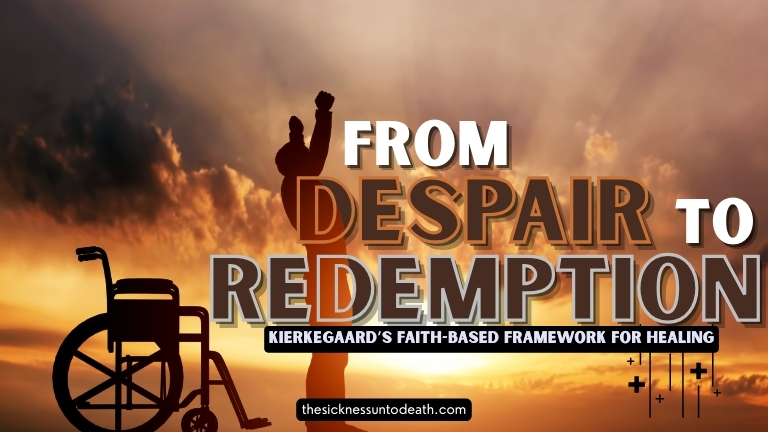Despair is a condition that transcends time, affecting individuals across all generations. Søren Kierkegaard, the Danish philosopher and theologian, explored despair as a fundamental aspect of human existence in The Sickness Unto Death. He argued that true healing is not found in external solutions but in an inward transformation through faith. His insights provide a powerful framework for those seeking spiritual and emotional healing in today’s world.
Understanding Despair: Kierkegaard’s Perspective
Kierkegaard viewed despair as more than just sadness or suffering. To him, despair is the misalignment of the self—an internal struggle that arises when a person fails to live in accordance with their true nature. He identified different types of despair:
- Despair of Not Being Aware of One’s Self – Living unconsciously, avoiding self-examination, and conforming to societal expectations without true purpose.
- Despair of Not Wanting to Be One’s Self – Feeling trapped in one’s identity, rejecting personal responsibility, and wishing to be someone else.
- Despair of Wanting to Be One’s Self Without God – Attempting to construct meaning and identity independently, without faith, leading to deep existential suffering.
For Kierkegaard, despair is not just an affliction; it is a signpost pointing towards the need for spiritual transformation.
Faith as the Path to Redemption
Unlike modern self-help solutions that often focus on external changes, Kierkegaard insisted that true healing comes from within. He proposed that faith is the key to overcoming despair and finding redemption:
- Embracing the Leap of Faith – Healing begins when one acknowledges their dependence on God and takes a leap of faith, surrendering self-will and embracing divine grace.
- Acceptance of Imperfection – Faith allows individuals to accept their flaws, recognising that their worth is not determined by worldly success but by their relationship with God.
- Freedom Through Surrender – Instead of trying to control everything, faith teaches that true freedom comes from surrendering to God’s will, allowing inner peace to replace anxiety and despair.
- Authentic Living – Kierkegaard believed that a life rooted in faith leads to authenticity, where a person can fully embrace who they are in harmony with their spiritual purpose.
Applying Kierkegaard’s Teachings Today
In a world dominated by anxiety, comparison culture, and existential uncertainty, Kierkegaard’s faith-based framework remains deeply relevant. Here’s how his insights can be applied to modern life:
- Engage in Deep Self-Reflection – Set aside time to examine your true desires, fears, and motivations, identifying areas of hidden despair.
- Let Go of Superficial Identities – Avoid defining yourself through external achievements or social validation, and seek a deeper sense of self.
- Cultivate a Life of Faith – Strengthen your spiritual foundation through prayer, scripture, and seeking a personal connection with God.
- Shift from Control to Trust – Replace the stress of controlling outcomes with faith in divine guidance, allowing peace to take root.
- Live with Purpose and Conviction – Move beyond passive existence and embrace a life of intentional faith, grounded in spiritual truth.
Further Exploration of Kierkegaard’s Wisdom
To dive deeper into Kierkegaard’s profound insights on despair and faith, check out The Sickness Unto Death: A Modern Translation for the 21st Century at www.thesicknessuntodeath.com. This modern translation brings his teachings to a contemporary audience, offering practical guidance for those seeking a path from despair to redemption.
Despair is an unavoidable part of the human experience, but it does not have to define us. Kierkegaard teaches that through faith, individuals can move from a state of spiritual sickness to redemption and healing. By embracing faith, surrendering self-will, and living authentically, one can experience a transformation that leads to inner peace and true fulfilment.

